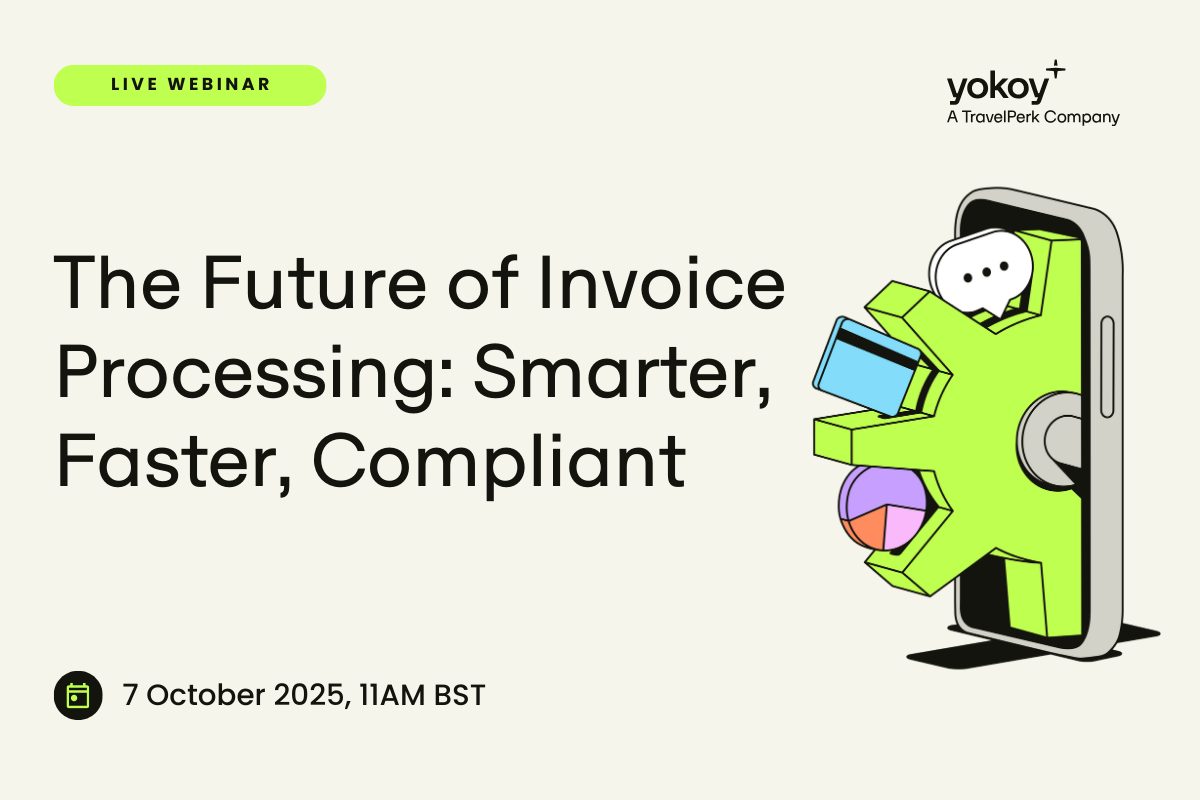Home / The Modern CFO: Balancing Strategy and Daily Operations
The Modern CFO: Balancing Strategy and Daily Operations
- Last updated:
- Blog

Not too long ago, the Chief Financial Officer (CFO) was primarily a master of spreadsheets, a gatekeeper of financial reporting, or just the one who ensured the numbers always added up. Modern CFOs are way ahead of balance sheets and financial reporting as their strategic leadership has evolved. Financial leaders nowadays drive digital transformation, risk management, and business growth. With increasing market volatility, changing regulations, and adopting automation and artificial intelligence (AI), today’s CFO must balance financial oversight with long-term strategy.
Today’s CFO has become a strategic leader, a business partner to the CEO, and an architect of growth. With rising market volatility, stricter regulations, and the rapid adoption of AI and automation, CFOs must balance short-term financial stability with long-term strategic planning.
CFOs now oversee risk management, scenario planning, and investor relations while ensuring smooth daily operations. Managing both is challenging, but with the right tools and strategy, CFOs can drive profitability and sustainable growth.
Let’s find out how modern finance leaders can find a balance in all these tasks.
The two main focuses of modern CFOs: Strategy vs. daily operations
Financial leaders are pulled in two distinct yet interconnected directions: long-term strategy and day-to-day operations. This requires a balance of data-driven decision-making, financial management, and technology adoption.
Long-term strategy
As strategic partners for the whole company, CFOs must ensure that financial processes remain efficient, compliant, and stable. To achieve sustainable growth, CFOs must plan beyond short-term goals.
Financial planning: A CFO must align financial strategy with business goals by using forecasting, KPIs, and real-time data to drive profitability and informed decision-making for short- and long-term success.
Risk management: In an ever-changing market, mitigating financial risks by identifying disruptions, overseeing scenario planning, and ensuring resilience in liquidity, investor relations, and regulatory compliance is essential.
Digital transformation: Automation, AI, and machine learning have reshaped the CFO’s roles today by enabling finance teams to streamline reporting, control costs, and enhance financial systems for smarter decision-making.
Day-to-day operations
Modern corporations have multiple operations that require financial control daily. Finance teams and CFOs, in particular, need to be current on all costs wherever and whenever they occur.
Budgeting: Effective budgeting ensures resources are allocated efficiently, balancing departmental needs while maintaining fiscal responsibility through real-time financial planning.
Cost control: Expense control is critical to profitability, requiring CFOs to stay informed on analytics and automation. Monitoring spending and enforcing policies is essential to avoid inefficiencies.
Compliance: As regulations evolve, CFOs must oversee audits, comply with new laws, and implement transparent reporting to build trust with stakeholders.
Cash flow management: Maintaining steady cash flow is essential for every company, and CFOs must monitor liquidity, manage invoicing, and optimise working capital with real-time financial tracking.
Blog article
Automated Expense Reporting: Simplify Expense Tracking and Maximize Compliance
Automated expense reporting helps you simplify expense tracking, enforce compliance, and streamline your expense management workflows. See how it works.

Lars Mangelsdorf,
Co-founder and CCO
Key challenges in balancing responsibilities
As the role of the modern CFO expands beyond traditional financial management, balancing strategic planning with day-to-day financial responsibilities becomes increasingly complex. CFOs face growing expectations to drive business strategy, oversee financial stability, and lead financial transformation, all while ensuring operational efficiency in the finance function.
Time-consuming manual tasks
Financial reporting often involves tedious manual tasks, including budgeting and cash flow management. This may consume hours that could be spent on high-impact initiatives. Without real-time access to financial data, Finance teams often find themselves waiting for reconciliations, chasing expense approvals, or resolving errors. Operational efficiency suffers when teams manually process expenses, invoices, and audits instead of leveraging automation to streamline workflows.
To overcome this, finance leaders must integrate financial systems that provide seamless data analytics, ensuring greater accuracy and freeing time for strategic planning.
Growing regulatory complexities
Regulatory frameworks are constantly changing, with stricter guidelines around financial reporting, investor relations, and corporate governance. Compliance with evolving complexities, industry-specific regulations, and tax laws requires constant monitoring and adaptation. This challenge is further amplified when operating across multiple jurisdictions with unique compliance demands.
CFOs must implement advanced analytics and scenario planning to anticipate regulatory shifts and maintain financial health without compromising business agility. Strong internal controls, automation, and data-driven decision-making help finance teams avoid compliance challenges.
Siloed information
Data in isolated systems that are not interconnected can hinder the work of finance teams and CFOs. If financial data has to be collected in several separated silos, it makes informed decision-making nearly impossible. This also blocks improvements in financial strategies and long-term success. CFOs struggle to obtain an accurate, real-time view of profitability, liquidity, and cash flow without seamless integration between systems.
Investing in modern technology can ensure that finance teams can collaborate with other departments without creating silos. In addition, automation and machine learning can help consolidate financial data, enabling CFOs to make data-driven decisions that support sustainable growth and strategic direction.
Digital transformation
There is no other buzzword today than artificial intelligence: With modern machine learning and automation, financial operations can be boosted in efficiency. However, implementing new systems and transitioning legacy processes can be complex. With careful strategic planning, CFOs can advance digital transformation for the benefit of the whole company.
Additionally, while digital transformation promises improved operational efficiency and better data analytics, it presents challenges in cybersecurity and training employees to adapt to new technologies.
How CFOs can optimise their role
As the modern CFO navigates an increasingly strategic role, optimising responsibilities is key to balancing financial management, daily operations, and long-term success. Prioritisation, delegation, and adopting AI tools can help CFOs stay ahead of the curve.
Prioritisation
A crucial step for CFOs is distinguishing between high-value strategic tasks and routine financial operations. While risk management and investor relations contribute to a company’s long-term success, day-to-day tasks such as budgeting, spend management, and financial analytics can be optimised through AI-powered automation. CFOs can ensure their time is spent on initiatives that directly impact profitability and business strategy rather than being burdened by transactional activities.
Delegation
With the technological advancements mentioned, finance teams can delegate tedious manual tasks to AI tools while maintaining oversight of critical financial planning and compliance matters. AI can effectively handle repetitive or manual tasks such as expense management, cost control, or compliance checks, allowing organisations to function efficiently without constant intervention. CFOs can also delegate tasks to team members to free up more time for strategic decision-making.
AI and automation
Leveraging AI and AI-driven automation can enhance forecasting, expense management, and financial reporting for modern finance teams. This reduces manual workload, improves risk management, and helps employees stay compliant. Equipping financial systems and finance teams with AI tools can help finance leaders gain real-time insights and shift from operational oversight to strategic leadership.
AI-driven analytics: AI enhances forecasting by analysing historical trends, improving financial planning, optimising resource allocation, and mitigating market risks.
Automation: Automation streamlines expense management, reducing manual tasks like invoice approvals and fraud detection while improving budgeting and cost control.
Reportings: AI-powered reporting minimises errors, ensures regulatory compliance, and provides CFOs with real-time insights for better financial decision-making.
Case studies: Leading CFOs use AI to improve forecasting, automate variance analysis, manage risks, and enhance communication, driving efficiency and strategic growth.
Technology integration: Integrated financial systems eliminate data silos, ensuring seamless information flow across reporting, investor relations, and finance teams, empowering CFOs to lead digital transformation.
Yokoy Expense
Manage expenses effortlessly
Streamline your expense management, simplify expense reporting, and prevent fraud with Yokoy’s AI-driven expense management solution.

The future of the CFO Role
While we’re still waiting for flying cars, the role of CFOs is evolving beyond traditional financial management. Finance leaders seem to become increasingly leaders in digital transformation. By integrating modern tools to advance and streamline existing financial systems, CFOs can improve operational efficiency while ensuring short-term stability and long-term growth.
Collaboration with executives and partners is becoming essential as CFOs seek to align financial strategy with technology integration and business operations. This cross-functional approach eliminates siloed information, streamlines cost control and enhances data-driven decision-making for the whole organisation.
Insights into real-time metrics of financial data will increasingly be a part of the day-to-day tool CFOs will handle. This will allow them to instantly monitor cash flow, KPIs, and financial performance. AI-driven financial reporting can help to shift from reactive analysis to proactive strategic leadership, which makes CFOs key enablers of business success in a rapidly evolving financial landscape.
How Yokoy supports modern CFOs in balancing their role
Enough of challenges and complexities. Yokoy is here to make the lives of CFOs easier and yet drive their efficiency to new strengths.
With Yokoy’s AI-powered spend management platform, you have a comprehensive solution to help you effectively balance your day-to-day and long-term responsibilities.
AI-driven spend management
Yokoy’s platform leverages AI to automate and streamline daily financial tasks. From expense tracking and invoice management or corporate card payments to compliance checks or fraud prevention, Yokoy provides one platform that assists you and your team in managing tasks efficiently and with the click of a mouse.
This single system can significantly reduce your manual workloads and enhance process efficiency. The platform’s self-learning AI adapts to your company-specific workflows and helps ensure seamless automation across various financial processes.
Real-time expense tracking and forecasting
Staying up-to-date is more important than ever for every CFO. That’s why Yokoy has integrated real-time expense tracking, which provides immediate visibility into spending patterns and enables proactive cost management. This instant access to financial data facilitates more accurate forecasting and data-driven decision-making. You can adjust budgets as needed and prevent potential financial issues before they escalate. Yokoy can help you to project future trends and switch from reactive to proactive.
Automated compliance and fraud detection
There is nothing harder than keeping up with ever-changing regulations. If your company is a worldwide operating enterprise, your finance team can speak volumes about this hardship. Yokoy enhances compliance and fraud prevention through AI-driven monitoring. The platform continuously analyses transaction data to detect anomalies and potential fraudulent activities. This reduces the risk of financial loss and keeps your finance team happy. With Yokoy’s automated compliance checks, the platform helps ensure adherence to company policies and regulatory requirements. This minimises the workload associated with manual oversight and can save CFOs from costly penalties.
AI and automation create more time for growth
By automating routine financial tasks, like expense management or cost control, Yokoy enables you to allocate more time to strategic initiatives. You can focus on growth and innovation rather than having your finance team track employee paper receipts. With the platform’s AI capabilities, you can handle data capture, validation, and reporting, freeing up your time to explore new opportunities.
Next steps
Take control of your financial operations and unlock strategic growth with AI-driven automation. Book a demo today to see how Yokoy can streamline your spend management, enhance compliance, and give you real-time financial visibility.
In this article
See intelligent spend management in action
Book a demoRelated content
If you enjoyed this article, you might find the resources below useful.


